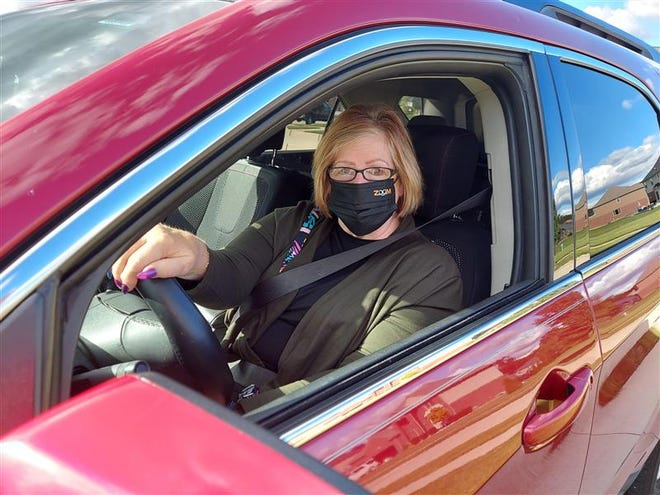Dearborn — In March after three years of development, Bilal Hashwi and Basel Al Yasin were set to launch their new Zoom Ride hailing service as a competitor to Uber and Lyft. Then COVID-19 hit.
“It’s not the best time to expand or to do any business,” Zoom Ride chairman Hashwi told The Detroit News. “People did not want to drive. … We’ve added some features to improve the safety. That’s why we have tried to do it during COVID.”

Zoom Ride is seeking to improve upon the safety of the ride-hailing, not just with respect to COVID-19, but as the industry been rocked by sexual assault allegations. The Dearborn-based company’s creators see a shift now with roughly 800 drivers having requested to contract with the app, surpassing the original goal of starting with 200. More than 300 riders have signed up since its soft launch Sept. 21 in Southeast Michigan.
Zoom Ride is serving Macomb, Oakland, Washtenaw and Wayne counties with plans to expand to Grand Rapids and Lansing over the next three weeks.
Stay-at-home orders had shaken the ride-hailing business earlier this year. Traffic at Uber in April was down 80% year-over-year, and it announced plans to lay off about a quarter of its staff in May. But as more people return to work, signs of recommencement are beginning. Alphabet Inc.’s Waymo on Thursday said it was resuming its driverless Waymo One ride-hailing service in Phoenix and would bring back the vehicles with a trained vehicle operator later this year.

To address the pandemic, Zoom Ride is offering to its drivers motion-activated ultraviolet lights that automatically turn on and off to sanitize the vehicle between rides. The company also is providing plastic sneeze-guard barriers as well as masks free to drivers and passengers. But as the drivers are contractors, there are limits on the compliance of these features.
“If somebody doesn’t want it, we can’t force them,” Hashwi said. “We make them available to everyone.”
Zoom Ride next will head to Miami, Orlando and Fort Lauderdale in Florida and soon will target Chicago, Boston and international locations. It will avoid places like New York City for now as more shutdowns loom there.
Zoom Ride’s creators see their app as a need for those looking for transportation options: “We’ve noticed there was a lot of improvement that could be made to the ride-share industry,” said Hashwi, a former automotive engineer and benchmarking program manager for Ford Motor Co.
Namely, Hashwi cited growing concerns over sexual assault in connections with ride-hailing services. Uber late last year released a report identifying nearly 6,000 allegations of serious sexual assaults in 2017 and 2018 in the U.S.
“One-third of the current rideshare riders are female,” Hashwi said, noting that the company’s research has found “most females are not comfortable with being driven in a car with a stranger.”
In response, Zoom Ride allows female passengers to request female drivers. Passengers also are able to share their trip information with a family member or friend who can track the trip in real-time even if they do not have the Zoom Ride app.
Additionally, the app includes a panic button that either the driver or passenger can press to contact the 24/7 call center in Dearborn. Phone cameras will be used to provide audio and video to check on the situation and call emergency response if needed.
“There is potential in this space,” Al Yasin, the company’s CEO, said. “There always is room for a new player to bring something new to the space.”
The company also seeks to accommodate long drives and pickups where there might not immediately be a driver available, though such occasions charge an added premium to cover costs for drivers. Zoom Ride users also can book by the hour with multiple stops or schedule a ride for another person. On average, a driver can earn 75-80% on a typical drive, said Al Yasin, the former head of Panasonic Qatar NAS Group and previously has worked with LG Electronics.
The startup currently employs 20 people and is hiring.
“We have the technology and right team for it,” Hashwi said. “Safety and customer service is our No. 1 priority to provide a very personalized and reliable experience.”
bnoble@detroitnews.com
Twitter: @BreanaCNoble